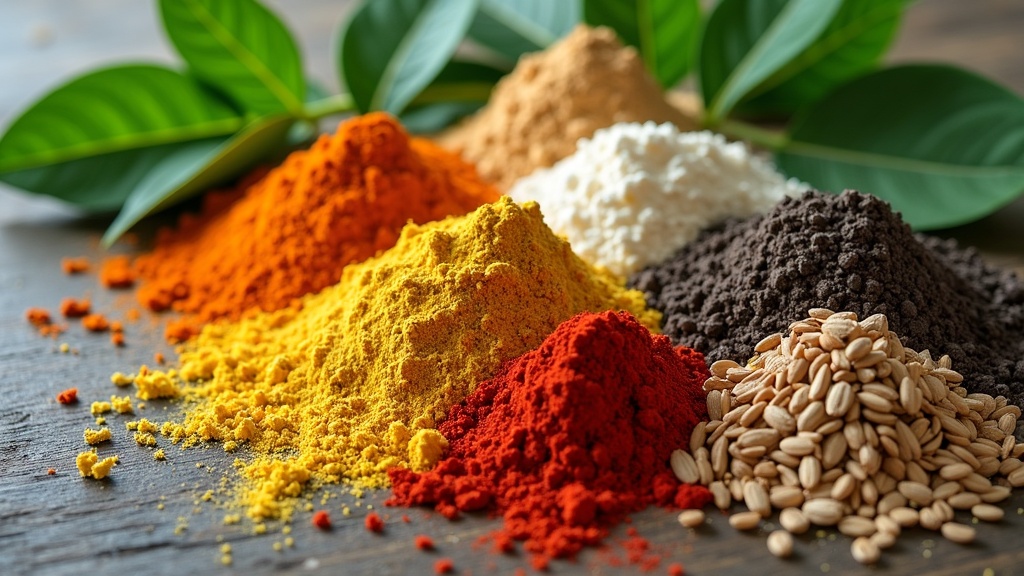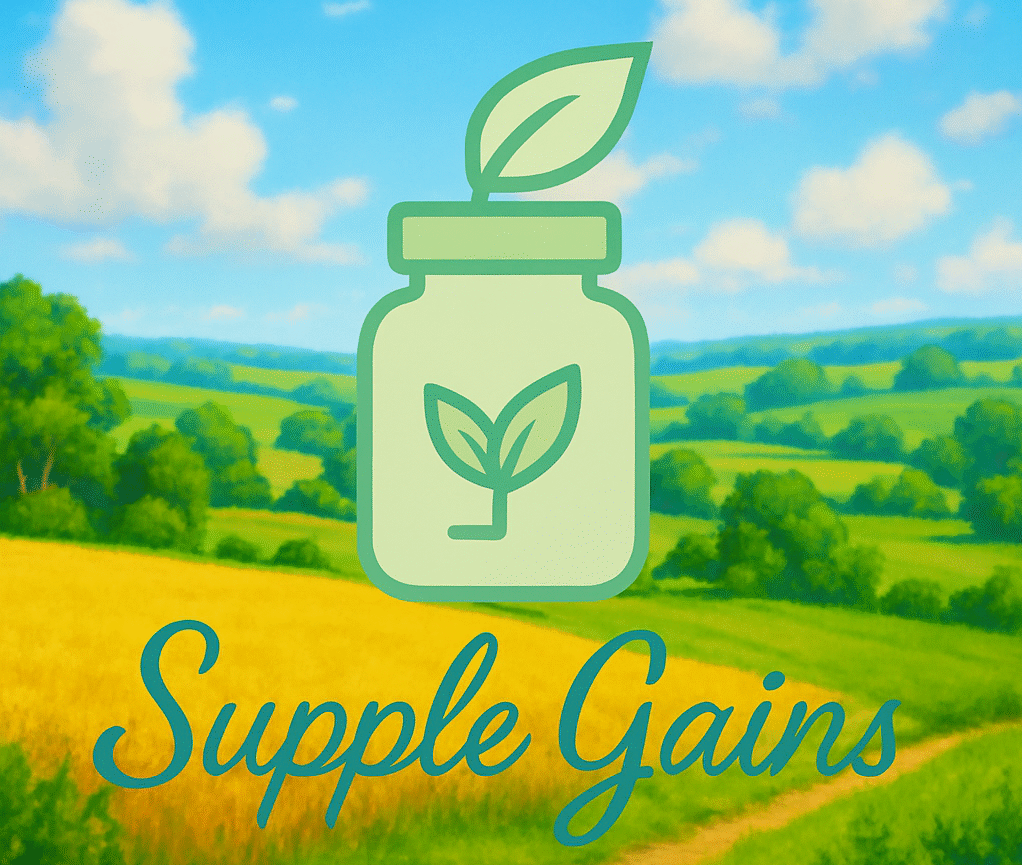If you’re someone who likes to keep active, whether that’s hiking, playing sports, hitting the gym, or cycling around town, you’ve probably considered adding a supplement or two to your routine.
Plantbased supplements are getting a lot of attention these days for being kinder to the environment and easier on many people’s stomachs.
Still, picking the right ones out of the sea of options can feel a little overwhelming.
This article gives you a clear guide to the best plantbased supplements for active adults, no matter your sport or fitness level.

Why PlantBased Supplements Are Worth Considering
More people are looking at plantbased supplements these days, and not just vegans or vegetarians.
Sports nutrition is shifting, and today’s plantbased formulas pack a punch.
These products rely on ingredients like peas, brown rice, hemp, soy, mushrooms, and even algae.
For many active adults, the switch to plantbased comes with perks, such as fewer digestive issues, lower allergens for some, and a boost from extra plant nutrients like antioxidants and fiber.
Switching to a plantbased supplement routine can also appeal to folks who want to make more environmentally conscious choices.
According to research from the Harvard T.H. Chan School of Public Health, plantforward diets typically have a much lower environmental impact than those full of animal products.
So in many ways, plantbased supplements don’t just support your body—they’re a nod to the planet, too.
Best PlantBased Supplements for Active Adults
Here’s where things get practical. I’ve pulled together the most helpful categories of plantbased supplements that can support your energy, strength, and recovery.
Each supplement comes with its own set of benefits and quirks, so picking what fits with your needs and personal goals is key.
- PlantBased Protein Powders: The goto supplement for most active adults is a quality protein powder. Look for options made from peas, brown rice, soy, or a blend. These offer all the amino acids your muscles need after a workout in an easytodigest package. Some reliable options include Orgain Organic Protein, Vega Sport, or Garden of Life Sport.
- Plant Omegas (Omega3 Fatty Acids): Omega3s are important for joint health, recovery, and brain function. Instead of fish oil, try algae oil or flaxseed oil capsules for a veganfriendly alternative. Algae based omegas, like those from Ovega3 or Nordic Naturals Algae Omega, deliver DHA and EPA just like you’ll find in fish sources.
- Magnesium: Magnesium is super important for muscle recovery and keeping cramps at bay. Plantbased magnesium supplements are usually made from mineralrich sea water or leafy green veggies. Look for citrate or glycinate forms, since they’re easier on the stomach. Examples include Pure Encapsulations Magnesium (citrate/glycinate) or Natural Vitality Calm.
- Turmeric and Curcumin: Inflammation can slow anyone down, whether you’re training hard or just dealing with the daytoday hustle. Plantbased turmeric supplements, with concentrated amounts of curcumin, can help with soreness and joint mobility. Most come paired with black pepper extract for better absorption. Check out brands like Gaia Herbs or MegaFood.
- BCAAs and EAAs: Branchedchain amino acids (BCAAs) and essential amino acids (EAAs) support muscle building and recovery. Many new BCAA blends get their amino acids from fermented plants such as sunflower seeds and corn. You’ll find options from brands like Genuine Health Fermented BCAAs or Kaged Muscle.
- Antioxidant Greens Powders: Packed with spinach, kale, spirulina, and wheatgrass, these powders work great for anyone who needs a nutrient boost on days when salads are off the menu. They can help bridge the gap and support overall recovery. Try Amazing Grass or Athletic Greens for starters.
Getting Started With a PlantBased Supplement Routine
Making the switch to a new supplement routine doesn’t have to be complicated.
Always check with your doctor or registered dietitian before starting anything new, especially if you have allergies or chronic conditions.
Here’s a simple roadmap that’s worked for me and for others who want to build a plantbased supplement stack:
- Figure out what’s missing from your diet or routine: Do you need more protein? Are you looking to recover faster, sleep better, or end cramps?
- Start with one or two new supplements at a time: If you’re adding protein powder, for example, give it a couple of weeks before adding greens or omegas. This way you can see what actually helps.
- Pay close attention to quality: Not all supplements are created equal. Look for brands that provide detailed ingredient lists and have thirdparty testing.
- Mix things up: Most powders can be mixed into smoothies, oatmeal, or even pancakes. Capsules are best with meals. Check the back of the packaging for tips.
- Listen to your body: It’s easy to get swept up in online hype, but everyone’s nutrition and digestion needs are different. If something feels off, pull back or swap it out for another option.
Things to Think About Before Adding PlantBased Supplements
I’ve learned that even the best supplements can cause more hassle than help if you don’t take a few things into account first.
Here are a few hurdles I’ve run into, plus some workarounds that make life easier:
- Digestive issues: Some plantbased protein powders (especially those with a lot of fiber) can cause bloating or gas. If you notice stomach upset, try a blend with added enzymes or a different base like rice instead of pea.
- Ingredient transparency: Some lesserknown brands use fillers or unnecessary additives. Look for products that list every ingredient and explain where things are sourced from.
- Flavor and texture: Plant proteins and greens can taste earthy or gritty. Flavored options or blends with vanilla, chocolate, or fruit can make a big difference. Mixing them into a smoothie with bananas or berries helps a lot if you’re picky.
- Price and value: Plantbased supplements are sometimes pricier than their standard counterparts. Buying in bulk, using subscription services, or timing your purchases with sales keeps things more affordable.
- Allergens: Just because a supplement is plantbased doesn’t mean it’s allergenfree. Pea, soy, and nuts show up often, so doublecheck the label if you have food allergies.
Digestive Issues
My first try with a plant protein powder wasn’t great, since the bloating and stomach aches nearly made me quit.
Swapping to a pea and brown rice blend with digestive enzymes helped a lot.
It’s worth playing around until you find something gentle enough for your system.
Ingredient Transparency
Sifting through ingredient lists became my new hobby when shopping for clean supplements.
Brands that show full sourcing and get thirdparty certifications are more trustworthy.
The NSF Certified for Sport and Informed Choice badges are worth looking for.
Flavor and Texture
Earthy, gritty shakes weren’t my favorite, so mixing flavored protein or greens powder into a berry smoothie quickly became my go-to.
If you’re not sure, try a singleserving packet before jumping in on a big tub.
Allergens
Not everyone realizes plantbased doesn’t always mean hypoallergenic. Soy, nuts, and peas definitely show up often.
Reading every label carefully and choosing “freefrom” blends or allergen-tested products made shopping much easier for me.
No single supplement routine works for everyone, so gentle trial and error (and a bit of label reading) leads to the best results for your lifestyle and fitness goals.
Tips for Getting the Most Out of PlantBased Supplements
Getting the hang of plantbased nutrition is pretty rewarding, and there’s always something new to learn.
Here are a few extra tips that I picked up after several years of trying out different products:
Pair protein with carbs for recovery: After tough workouts, a shake or meal with both protein and some carbs (like oats or fruit) helps refuel muscles more effectively.
Cycle your supplements: Using blends like greens or turmeric on workout days can help your body bounce back faster, but skipping a day or rotating brands can help keep things interesting.
Hydration matters: Plantbased protein powders and fiberrich supplements tend to make you a bit thirstier.
Drinking extra water supports digestion and helps nutrients get absorbed better.
Experiment in the kitchen: Plantbased baking mixes, overnight oats, or energy balls can all benefit from added protein, oats, or greens powder.
Get creative to keep things tasty.
Common Questions About PlantBased Supplements
Anyone new to plantbased supplements usually has a few questions, so here are some I hear most often from friends, clients, and fellow gym-goers:
Question: Do plantbased supplements work as well as regular ones?
Answer:
Yes, for most people!
If you pick supplements that offer a full range of nutrients (like complete proteins or algae omegas), you’ll get the same benefits as traditional options.
Question: Are plantbased supplements safe for people with allergies?
Answer:
Not always.
Many are safe, but always look for peanut, soy, or gluten ingredients if you have allergies or sensitivities.
Question: How do I know if I’m picking a highquality supplement?
Answer:
Check for certifications, review the ingredient lists, and stick with brands that do thirdparty testing.
Researching or asking a registered dietitian to review your picks helps, too.
Final Thoughts
For active adults, plantbased supplements offer a simple and practical way to fill in nutrition gaps, bounce back faster, and support overall wellbeing.
From protein powders to omega3 capsules, there are plenty of options for every lifestyle and fitness goal.
Choosing products that fit with your values, budget, and nutrition needs can help you feel your best, both in the gym and on rest days.
Staying flexible and focusing on quality makes all the difference—and the little changes add up over time.
